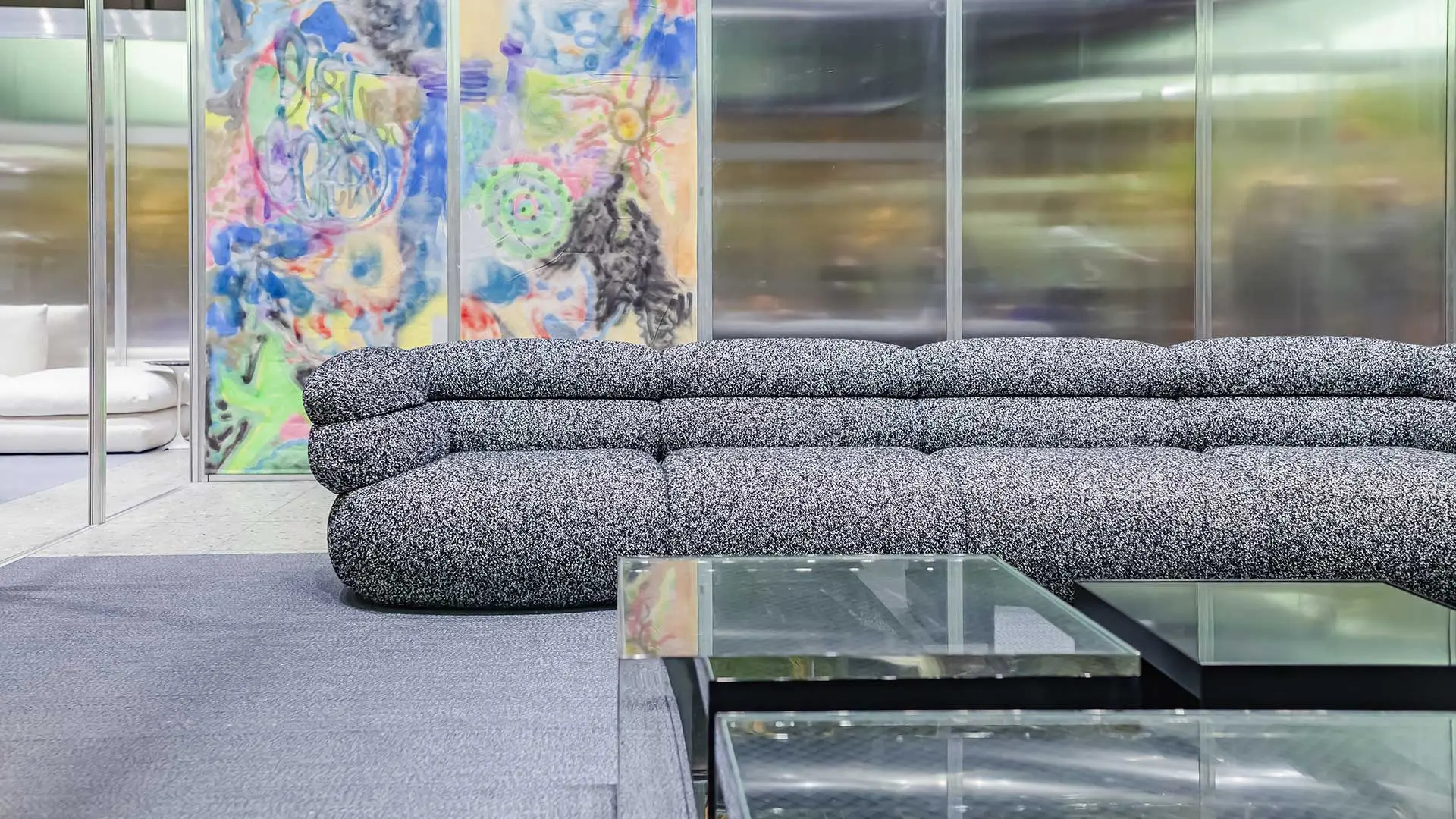From urban geopolitics to the biopolitics of bodies, the 24th Triennale - inaugurated by Nobel Laureate in Economics Michael Spence, amongst others, and open to the public until 9th November - denounces the structural inequalities that mark contemporary lives, offering insights and solutions through the contributions of internationally renowned artists, architects, designers and scholars
UK furniture market in recovery, partly due to smart working
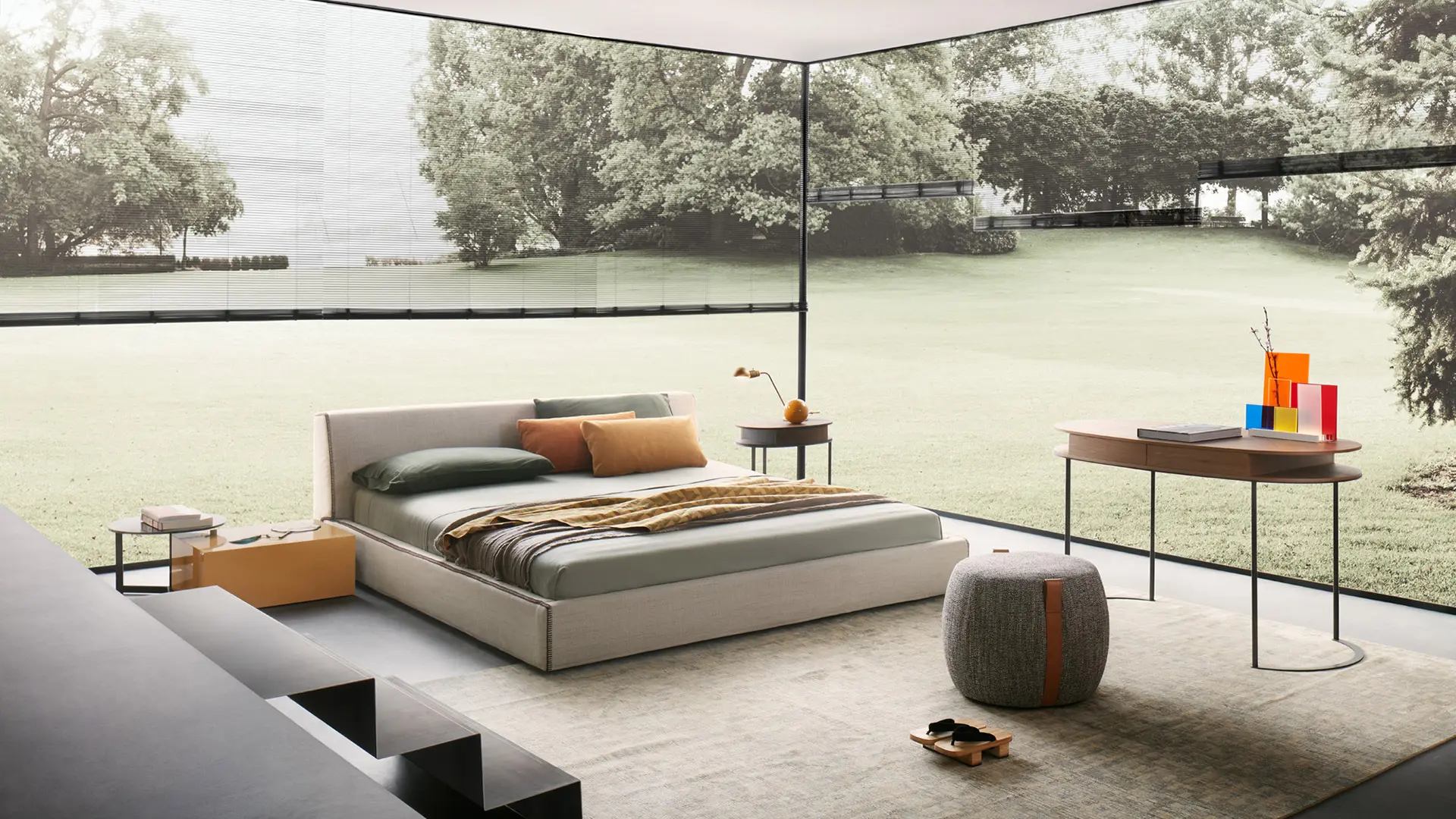
photo courtesy Lema
After a downturn in 2020, the market is showing encouraging signs, especially in the residential sector. Made in Italy performs well as homes become versatile spaces that combine work and domesticity
“The UK market has been improving slightly since January…” We may flesh out the raw Office for National Statistics data on Covid 19’s impact on the manufacturing sector, including furniture, by drawing on the opinions of UK furniture industry professionals and retailers like Barbara Villari, Managing Director & Art Director at the family business of the same name, who says: “Our flagship store in London, where we have a Villari concession store at Harrods, suffered a major downturn over the past two years due to the pandemic. Now, we are seeing green shoots of recovery.”
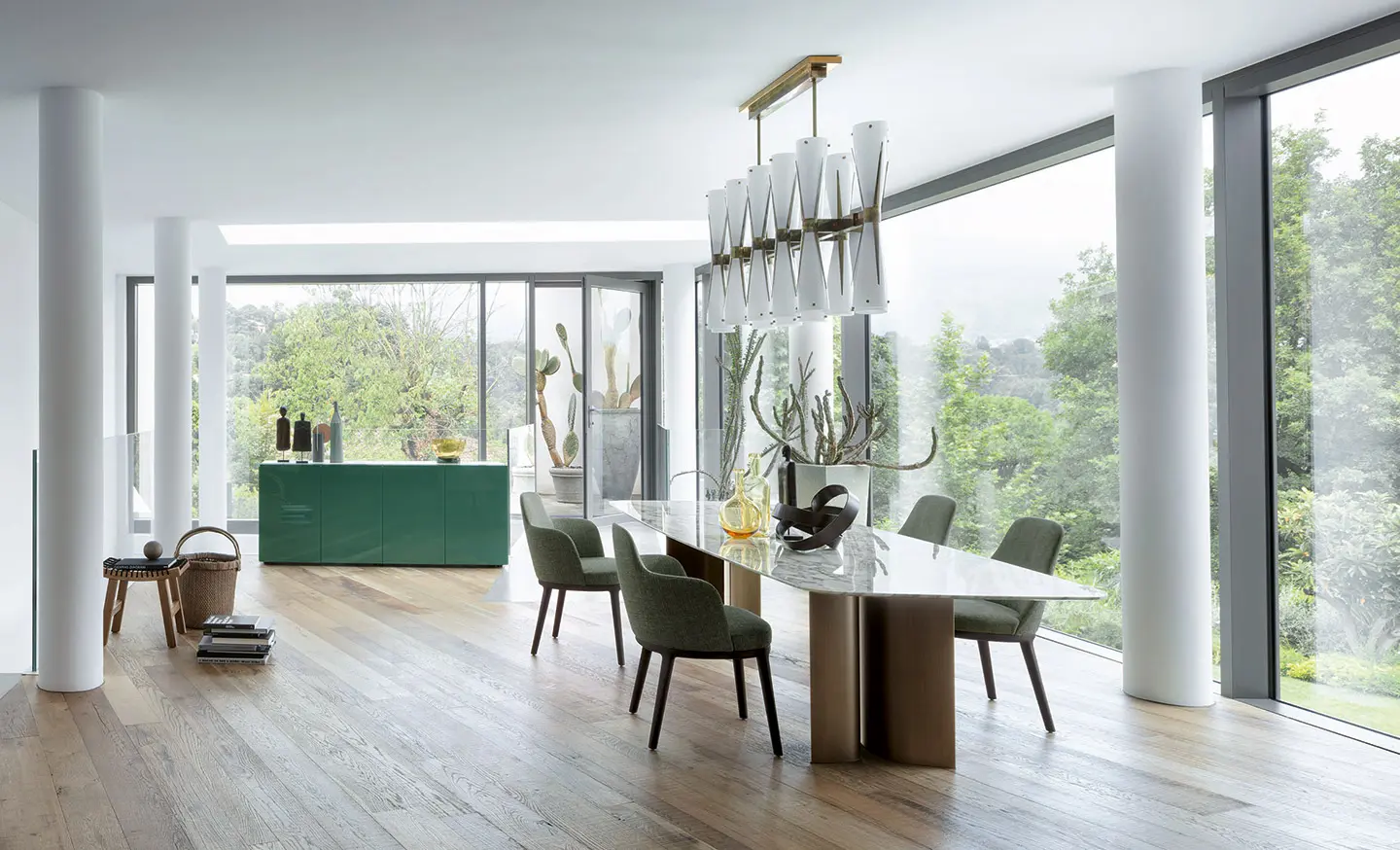
Gullwing, Lucylle and Florens by Gabriele and Oscar Buratti, photo courtesy Lema
The UK furniture sector performed strongly pre-Covid. In 2019, around 6,355 companies were operating in the sector, which employed over ninety-five thousand people. According to ONS data, the industry posted a 7% decline in 2020 compared with 2019. Although that constituted a downturn, it was less severe than some other manufacturing sectors, which had to weather declines of 10% or more. “The UK market held up quite well during the acute phase of the pandemic,” comments Umberto Salon, Managing Director at Lema UK. “In the contract sector, the government kept construction sites open, which allowed projects to proceed. Working with our major clients and developers, we made a strategic decision to put furniture into production before the second wave hit, enabling projects to continue at pace and on time. The retail sector obviously suffered from the impact of lockdown, but it has since recovered quickly and vigorously, thanks to demand from individuals who, spending more time at home, have been renovating some of their furniture.”
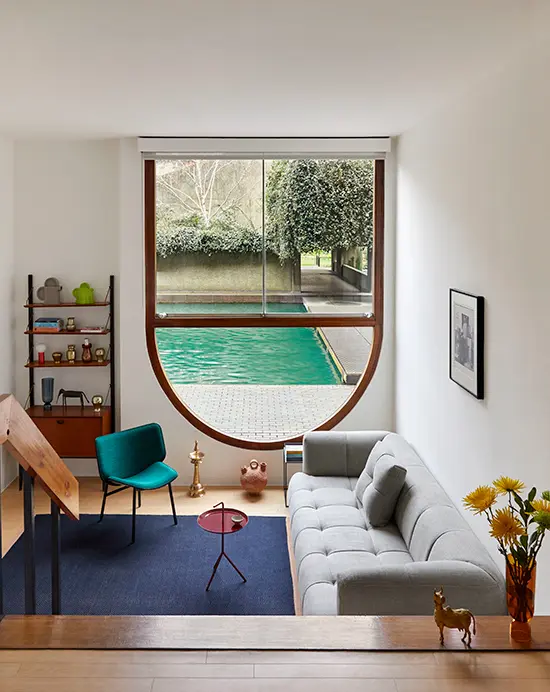
Doshi Levien home in the Barbican, photo courtesy
Total UK furniture sales reached nearly £9 billion in 2021, up 23.3% on 2020 (£7.283 billion), but still down 3.5% on 2019 (£9.311 billion). The Lema UK Managing Director believes that London remains a globally significant market, especially in the high-spending residential sector, thanks to the city’s stability and the certainty of medium- to long-term investment. “The supply of super-luxury homes and apartments (i.e., costing over £8 million) falls far below demand, so the luxury residential market is growing strongly,” comments Salon. “In addition, major investment funds and pension funds are boosting demand: for them, London is a safe haven, a market with great appeal. This has allowed us to continue growing in the retail market, contract in particular.” Nipa Doshi, one of the two brilliant minds behind design duo Doshi Levien, says.
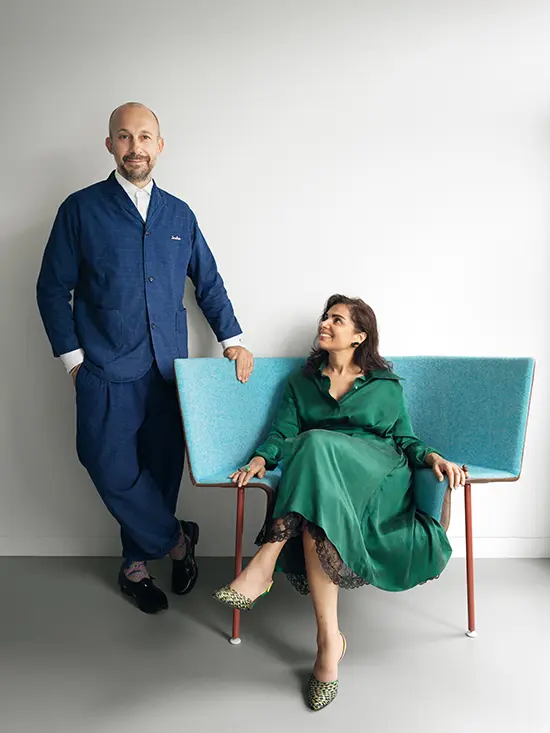
Nipa Doshi and Jonathan Levien, photo courtesy
Nipa Doshi, one of the two brilliant minds behind design duo Doshi Levien, says. “Many people have started working from home, especially in London, which is the UK’s largest market for contract and domestic supplies. There’s been an incredible shift and return to home – I live in Central London, which completely emptied out during the pandemic.”
Known for her strong connection to her homeland, India, something that underpins her pluralistic look at the world and creative process, she adds: “People have begun conceiving the home not just as a space to work in – something we never thought of before – but also as a landscape to live in and an environment to take care of. The home has become versatile: the place you eat is the place you work, the couch – my go-to object in the home – is where you relax and also where you make Zoom calls. Versatility, adaptability, and comfort have become even more important. So many people have taken up cooking, for example, while the outdoors is a trend that has taken hold not as a generic outside, but as a living relationship between nature and the home, bring nature into the home. Although contract has suffered more, in actual fact the pandemic hasn’t been as dramatic for our industry, because residential has built up plenty of demand,” adds Doshi, who identifies experimentation, an openness to beauty, and greater freedom of expression as the trends that are shaping more experimental homes, more realistically reflecting our identity though eclecticism and greater use of colour. Boosted by the smart working boom, Lema’s home collection has seen an increase in sales, especially for desks such as Victor or Ortis, sofas like the new Venise, the bestseller at its Chelsea Flagship Store, and tables like Gullwing and Bulè. “We have also seen big demand for LT40s and modular systems that can be used for home storage, when home walls become office walls, and as separators in open-plan apartments to divide up home/office space,” adds Umberto Salon.
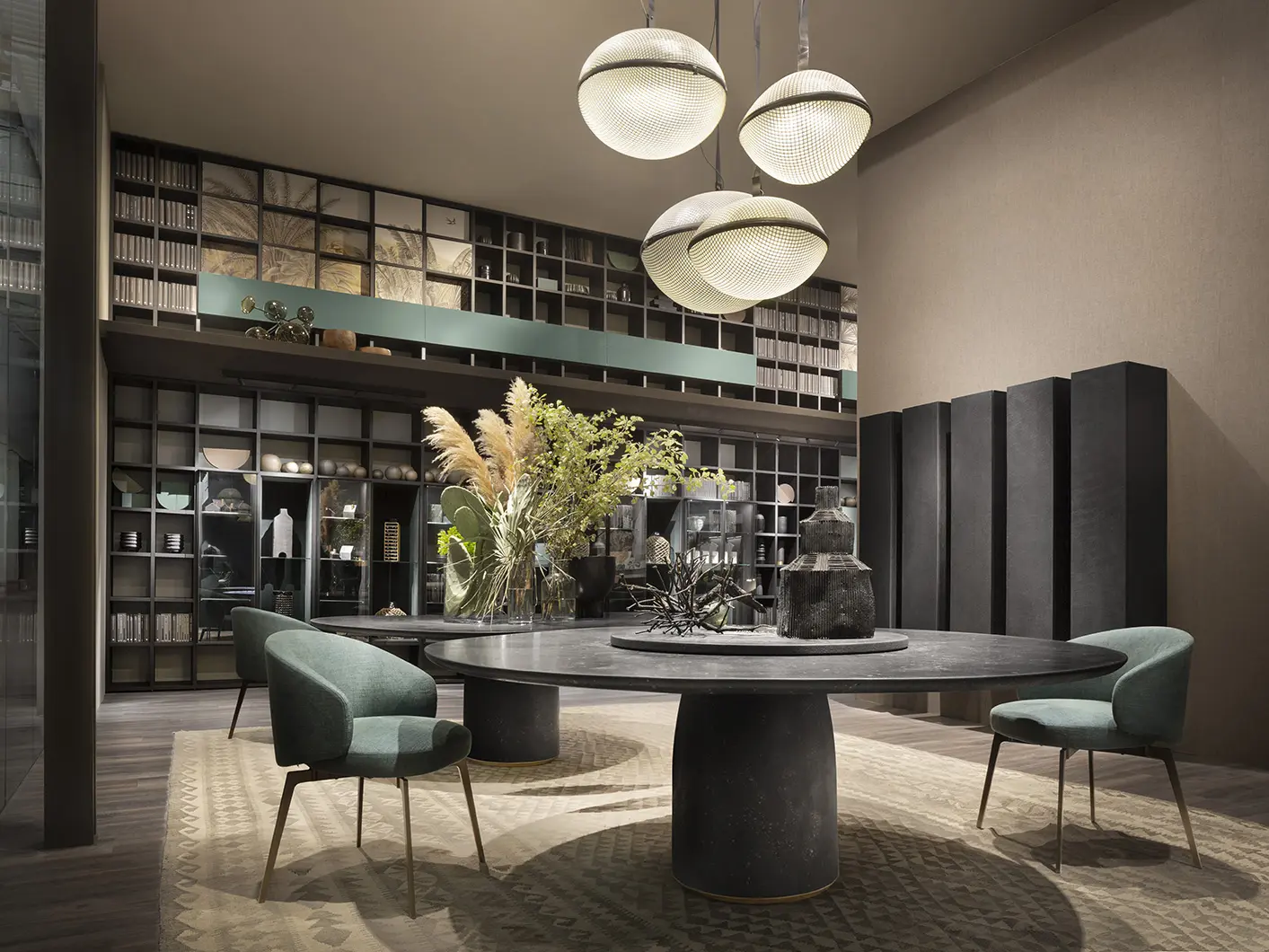
Bulè Table and Bea Chair by Chiara Andreatti, photo courtesy Lema
According to data from ICE, as of October 2021, Made-in-Italy furniture exports were back on the rise, reaching €737 million, up on the 2020 figure but down on the €890 million registered in 2019.
“Made in Italy is synonymous with luxury, high-quality, high-end design on the UK market. Its distinguishing features are choice of fabrics, tailoring, industrial production and handmade craftsmanship,” comments Nipa Doshi. “There is also a strong association with the concept of expense, high product costs, and accessibility. We should always remember that design is an elite product, one that not everyone can afford. Made in Italy, in particular, is very strongly positioned in the residential sector, as we see from the success of B&B Italia, Moroso, Poltrona Frau and Cassina. It’s positive to note that Made in Italy has its competitors, for example the revival of Scandinavian design, which is pushing to reinvent itself.”
When it comes to sustainability, probably the most topical issue of our day (and not only in furniture), the English designer has a very clear position. “Sustainability is not a trend we’ll be over next season, it’s our new reality, one that everyone must embrace, from makers to consumers, especially in the West, where for years people believed consumption came with no consequences attached.” Doshi is in no doubt: “A lot of innovation is happening in manufacturing, a lot of investment is being made in research to make products truly sustainable, to ensure near-zero impacts on the planet. That said, we’ve still got a very long way to go to change our lifestyles: to achieve that, we’ll have to start thinking about every single action we take.”









